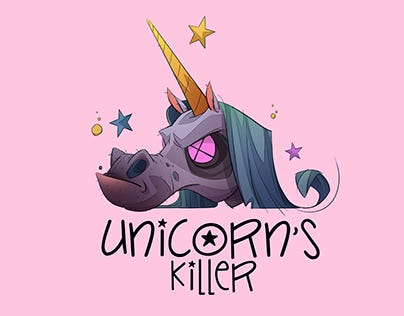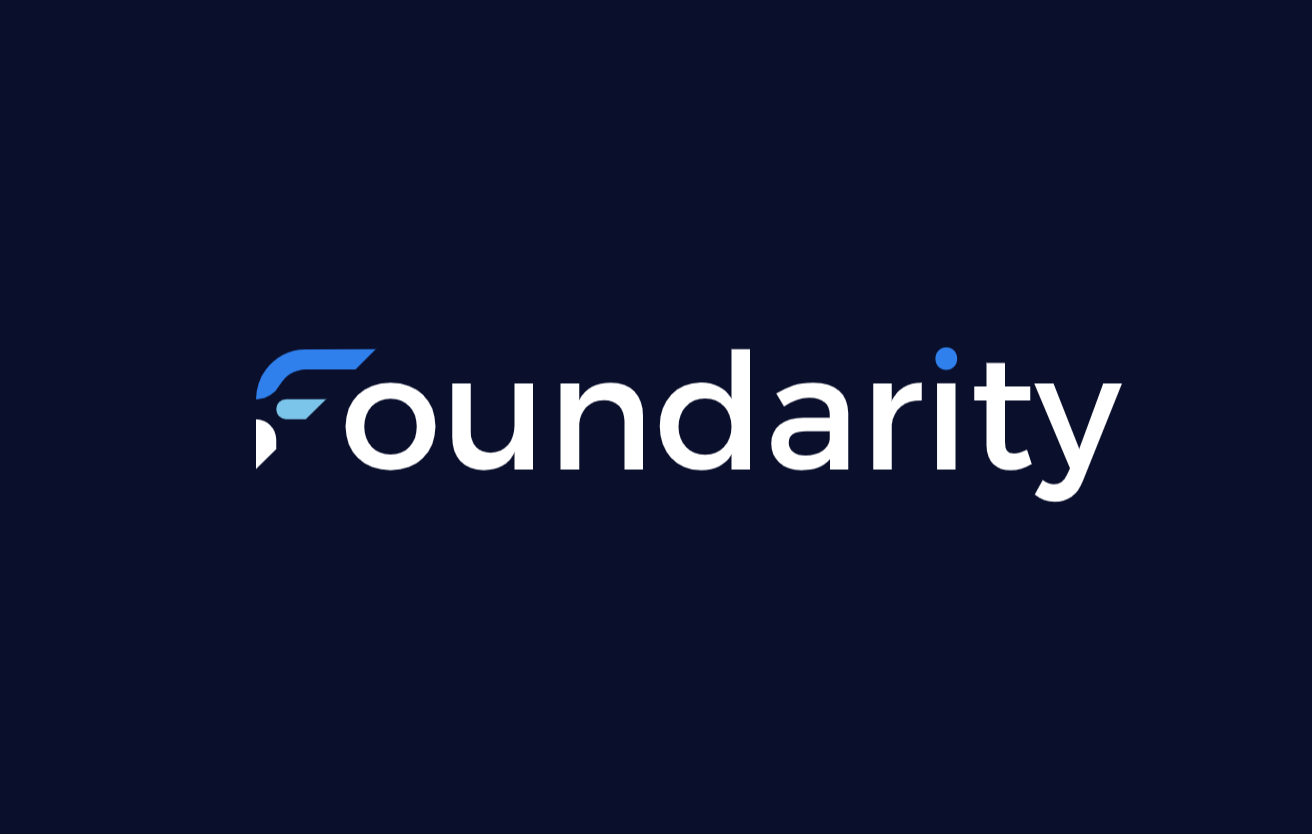💥 TLDR: Your startup's growth ceiling isn't your market, your technology, or your funding - it's your unwillingness to fire yourself from the job you loved and hire yourself for the job your company needs.
Every decision that requires your approval is a decision that caps your growth at the speed of your attention span.
The most dangerous moment in a startup's life isn't when it's running out of money.
It's when the founder's sense of self-importance outpaces the company's actual progress.
You built something.
People noticed.
Maybe investors wrote cheques.
Maybe TechCrunch wrote an article.
Maybe your mom finally understands what you do for a living.
And suddenly, you're not just building a product anymore.
You're building a legacy.
You're not just solving a problem.
You're changing the world.
You're not just leading a team.
You're leading a movement.
This is the moment your ego starts scaling faster than your startup.
Source : Oleksandr Kayda [Behance]
The Ego-to-Revenue Ratio
While your customers are still figuring out whether they need what you're selling, you've already decided you're the next Steve Jobs.
Despite the idea that tech startup founders are in their early 20s, the average age for the founder of a tech startup is 42.
Yet regardless of age, founder ego inflation happens at precisely the same velocity: immediately upon first external validation.
Here's what the data tells us: 82% of startups fail due to leadership or management issues.
Not market problems.
Not technical challenges.
Leadership.
The person in the mirror.
The cruel irony?
Founder's syndrome (also founderitis) is the difficulty faced by organisations, and in particular young companies such as start-ups, where one or more founders maintain disproportionate power and influence following the effective initial establishment of the organisation.
The very confidence that got you to start something is the same force that can destroy it.
The Micromanagement Masquerade
You tell yourself you're hands-on.
You prefer the term "detail-oriented."
Your team has other words for it.
The problem comes when the team expands, and their managing techniques don't adapt to the new scale of operations.
Delegation is a great signifier, too, as most micromanagers will either not delegate tasks that they shouldn't be doing anymore or take back delegated duties if they aren't satisfied with the results.
But here's the thing about micromanagement: it's not about the micro.
It's about the management.
Specifically, it's about your belief that you're the only one who can manage.
That's not operational efficiency.
That's ego efficiency.
The mathematics are simple:
If you're constantly involved in every detail, you're creating a bottleneck that slows progress and drains energy.
One person making every decision means one person's cognitive limitations become the company's growth ceiling.
The Delegation Delusion
"I'll delegate when I find the right people,"
you say.
Translation:
"I'll delegate when I find people who think exactly like me, make the same decisions I would make, and somehow do it without any of the context, experience, or investment I have."
The truth is that while most startup products can scale, the founders can't.
Delegating a task that you would usually do yourself to somebody else is something that comes surprisingly difficult to most people for a variety of (mostly psychological) reasons.
The dangerous whisper in your ear says you're irreplaceable.
But According to research, 65% of startup failures in investor portfolios can be attributed to people and organisational issues rather than product or market problems.
You're not irreplaceable.
You're the replacement problem.
The Theatre of Busy
Your calendar is full.
Your Slack is always pinging.
You haven't taken a real vacation since launch.
You wear exhaustion like a badge of honour.
But being busy isn't the same as being productive.
Being needed isn't the same as being effective.
Eric stressed the importance of focus and prioritisation in the journey of scaling startups looking to reach their first million.
"If it's not about building or selling the product, you have to say no,"
he advised.
The ego loves busy work because busy work feels important.
It gives you the illusion of indispensability while actually making you dispensable.
Every task you refuse to delegate is a task someone else can't learn to do better than you.
The Case Studies in Cautionary Tales
The history of startup failures reads like a masterclass in ego inflation.
Take WeWork's Adam Neumann, who transformed a real estate business into a lifestyle brand and himself from founder to guru.
While the company was hemorrhaging money, he was living it up and lining his own pockets.
He was cashing out stock options, taking out loans from WeWork at essentially 0 interest, buying over 10 of his own buildings and renting them to WeWork at a premium.
Or consider Elizabeth Holmes at Theranos, whose ego-driven narrative convinced investors to pour over $700 million into technology that didn't work.
Former employees have spoken out following Theranos' closing, painting the picture of an incredibly toxic culture that was ruled by paranoia, deception, bullying, and retaliation.
Despite different industries, these failures share a theme: ego-driven leadership, poor governance, and disregard for transparency.
The pattern is unmistakable: when founder ego scales faster than company fundamentals, the fundamentals eventually win.
They always do.
The Uncomfortable Truth About Control
You started your company because you wanted control.
Control over your time, your decisions, your destiny.
But somewhere along the way, the need for control became the need to control everything.
As the founder of a startup, particularly a first-time founder, control becomes an addiction.
You feel like the only way to succeed is to take control of every single aspect of your business.
Here's the paradox: the more control you try to maintain, the less control you actually have.
Every decision that flows through you is a decision that happens at the speed of your attention span.
Every problem that requires your input is a problem that scales at the speed of your availability.
The Growth Trap
The venture capital world loves rapid growth.
Double.
Triple.
10x.
The pressure to scale quickly creates a dangerous feedback loop where founders mistake speed for progress and size for success.
Growing at an unsustainable pace too early can be fatal, contributing to an estimated 74% of startup failures.
But the ego interprets caution as weakness and deliberate growth as lack of ambition.
The ego whispers:
"Move fast and break things."
Reality responds:
"Move fast and break yourself."
The Permission Problem
Your ego doesn't ask for permission to grow.
It doesn't wait for your company's infrastructure to catch up.
It doesn't pause for your team's capacity to expand.
It scales automatically, fed by every small win, every press mention, every investor meeting.
Meanwhile, your actual business - the one with customers and revenue and operations - grows at the speed of reality.
Which is to say, slowly, with setbacks, requiring patience and persistence and the kind of unglamorous work that egos don't like to do.
Micromanaging stifles creativity and demotivates team members.
Effective delegation encourages autonomy.
But autonomy for others means less autonomy for your ego.
And that's a trade most founders struggle to make.
The Identity Crisis
The hardest part about scaling a startup isn't the technical challenges or the market dynamics.
It's learning who you need to become to match what your company needs to become.
It's a cliché to say that founders flounder, but unfortunately, that's usually the case.
The qualities that serve them well in launching businesses often bring them down as their companies grow.
The founder who hand-codes the first version needs to become the CEO who hires the CTO.
The founder who knows every customer by name needs to become the executive who builds customer success systems.
The founder who makes every decision needs to become the leader who builds decision-making frameworks.
This isn't just about delegation.
It's about metamorphosis.
And metamorphosis requires the death of who you used to be.
The Scale-Down Solution
What if, instead of trying to scale up your involvement, you tried to scale it down?
What if, instead of asking
"How can I do more?"
you asked
"How can I do less?"
What if, instead of measuring your value by how busy you are, you measured it by how unnecessary you're becoming for day-to-day operations?
Something changes when they realise that they can't always come to you and ask for help.
They suddenly begin taking more action and initiative.
Your ego will resist this.
It will tell you that stepping back is stepping down.
That delegating is giving up.
That trusting others is losing control.
Your ego is wrong.
The Leadership Paradox
True leadership isn't about being needed.
It's about building others who don't need you.
Effective delegation and empowerment are crucial for the success of any startup.
Founders who master these skills can build stronger, more autonomous teams, driving their companies to new heights.
The paradox is this: the more you're needed for everything, the less valuable you become for anything.
The more indispensable you make yourself, the more you limit what your company can become.
The Mirror Test
Here's how you know if your ego is scaling faster than your startup:
You're in every meeting, even the ones you don't need to be in
You make decisions that your team members are perfectly capable of making
You believe that no one understands the vision like you do (and you might be right, which is the problem)
You feel guilty when you're not working and anxious when you're not needed
Your team asks permission for things they should be empowered to decide
You've created systems that require your approval to function
If this sounds familiar, congratulations.
You've successfully built a company that can't scale past the limits of your personal bandwidth.
Source : Elite Business Magazine
The Foundarity Sprint Insight
The companies that make it through the scaling phase aren't the ones with the most confident founders.
They're the ones with the most self-aware founders.
The ones who recognize that their job isn't to be the smartest person in the room - it's to build a room full of people smarter than them.
The question isn't whether you can scale your startup.
The question is whether you can scale yourself down while scaling your company up.
The question isn't whether you can build something great.
The question is whether you can get out of the way and let others build something greater.
The question isn't whether you have enough ego to start a company.
The question is whether you have enough humility to let it grow beyond you.
Because if your ego is scaling faster than your startup, then your startup isn't really scaling at all.
It's just getting bigger within the confines of your limitations.
And limitations, no matter how charismatic, don't change the world.
They just limit it.
Ready to Scale Beyond Your Limitations?
Most founders don't fail because they lack vision - they fail because they can't evolve past their founding identity.
The Foundarity Sprint is designed for software founders who recognise that their greatest competitive advantage isn't their technical skills or market insights - it's their ability to build leadership systems that don't depend on them.
What if the biggest breakthrough your startup needs isn't a feature or funding round, but a founder who can get out of their own way?
The Foundarity Sprint doesn't teach you how to build better products.
It teaches you how to build better leaders - starting with the one in the mirror.
Are you ready to discover what your company could become if you weren't the bottleneck?
Can you handle learning that your team's greatest limitation might be their unlimited access to you?
What would happen to your growth rate if every decision didn't have to flow through your approval?
The companies that scale successfully aren't led by the most indispensable founders.
They're led by the founders brave enough to make themselves dispensable.
The question isn't whether you can scale your startup.
The question is whether you can scale beyond yourself.
Join the Foundarity Sprint and discover what happens when you stop being your company's biggest asset and start being its most strategic investor.
Because the only thing harder than building a company is building a leader worthy of it.
Foundarity September Sprint
8 Founders.
3 Days Transformation.
Doors 🚪 Close 16th September 2025
Few Seats remain.
Join Us.
You have two steps
Join the Foundarity Community https://www.bit.ly/JoinFoundarityCommunity
Book your Clarity Call https://scheduler.zoom.us/atfoundarity/clarity-call
Essential Curated References
Foundational Reading
"Why Entrepreneurs Don't Scale" - Harvard Business Review (2002)
The seminal piece on founder limitations. Still the most cited work on why successful startup founders often become their company's biggest obstacle.
"The Hard Thing About Hard Things" by Ben Horowitz (2014)
Chapter 9: "The Case for the Fat Startup" directly addresses founder ego and the transition from builder to leader.
"Blitzscaling" by Reid Hoffman (2018)
Contrarian take: Shows how rapid scaling can work, but only when founders evolve their role at each stage.
Current Research & Data
McKinsey: "From Start-up to Centaur: Leadership Lessons on Scaling" (2024)
65% of startup failures in investor portfolios attributed to people/organizational issues, not product/market problems.
CB Insights: "The Top 12 Reasons Startups Fail" (2024)
Updated annually. Leadership/management issues consistently rank in top 3 failure causes across 3,200+ startup post-mortems.
PwC: "22nd Annual Global CEO Survey - Startup Edition" (2024)
82% of startup failures now attributed to leadership issues rather than market factors.
Case Study Deep Dives
"WeCrashed: The Rise and Fall of WeWork" by Reeves Wiedeman (2021)
Definitive account of how Adam Neumann's ego scaled faster than business fundamentals.
"Bad Blood: Secrets and Lies in a Silicon Valley Startup" by John Carreyrou (2018)
Elizabeth Holmes and Theranos - the ultimate cautionary tale of ego-driven fraud.
"Super Pumped: The Battle for Uber" by Mike Isaac (2019)
How Travis Kalanick's leadership style nearly destroyed a $70B company.
Psychology & Leadership
"Founder's Syndrome: The Third Rail of the Nonprofit Sector" - BoardSource (2023)
Though focused on nonprofits, the psychological patterns apply directly to startup founders.
"The Confidence Code" by Kay & Shipman (2014)
Chapters 8-10 on overconfidence bias and its impact on decision-making quality.
"Thinking, Fast and Slow" by Daniel Kahneman (2011)
Cognitive biases that affect founder decision-making, especially overconfidence and availability heuristic.
Delegation & Systems
"Traction: Get a Grip on Your Business" by Gino Wickman (2011)
EOS (Entrepreneurial Operating System) framework for systematic delegation.
"The E-Myth Revisited" by Michael Gerber (1995)
Still relevant: Why most small businesses don't work and what to do about it.
"Scaling Up" by Verne Harnish (2014)
Rockefeller Habits for scaling without founder bottlenecks.
Industry Reports (2024-2025)
Startup Genome: "Global Startup Ecosystem Report 2024"
Section on "Premature Scaling" - 74% of high-growth internet startups fail due to premature scaling.
First Round Capital: "State of Startups 2024"
Annual survey of 1,000+ founders on delegation, leadership evolution, and scaling challenges.
Sequoia Capital: "Arc of Company Evolution" (2024)
Updated framework showing required leadership transitions at each funding stage.
Essential Viewing
"The Dropout" (Hulu, 2022)
Amanda Seyfried as Elizabeth Holmes - visceral portrayal of ego-driven leadership.
"WeCrashed" (Apple TV+, 2022)
Jared Leto as Adam Neumann - how charismatic leadership can become toxic.
"Super Pumped" (Showtime, 2022)
Joseph Gordon-Levitt as Travis Kalanick - the cost of "win at all costs" mentality.
Essential Ongoing Reading
Harvard Business Review - "Managing Yourself" Section
Monthly articles on founder psychology, leadership evolution, and self-awareness.
First Round Review
Quarterly deep-dives on operational challenges, with frequent founder interviews.
Andreessen Horowitz Blog
"Building Companies" section often addresses founder evolution challenges.
Academic Research
"Narcissistic Leadership and Organizational Outcomes" - Journal of Business Ethics (2023)
Quantitative study on how founder narcissism correlates with company performance metrics.
"The Dark Side of Entrepreneurship" - Academy of Management (2024)
Peer-reviewed research on psychological traits that help start companies but hurt scaling.
"Founder Identity and Organizational Growth" - Strategic Management Journal (2024)
How founder identity anchoring limits organizational development.
Contrarian Perspectives
"Founders at Work" by Jessica Livingston (2007)
Interviews with successful founders who scaled themselves - shows it's possible.
"Zero to One" by Peter Thiel (2014)
Chapter on monopolies and why founder vision sometimes should override everything else.
"The Lean Startup" by Eric Ries (2011)
Build-Measure-Learn framework that can reduce founder ego attachment to ideas.
Quick Reference Checklist
Start Here (Weekend Read):
Harvard Business Review: "Why Entrepreneurs Don't Scale"
CB Insights: Latest startup failure report
One case study (WeWork, Theranos, or Uber)
Go Deeper (Month 1): 4. "The Hard Thing About Hard Things" - Chapters 8-10 5. McKinsey scaling report 6. "Traction" by Gino Wickman
Advanced Study (Ongoing): 7. Academic research on founder psychology 8. First Round Review archives 9. Annual ecosystem reports
Reality Check (When Needed): 10. Watch one of the streaming series 11. Re-read your favorite founder failure case study 12. Review your own delegation patterns




